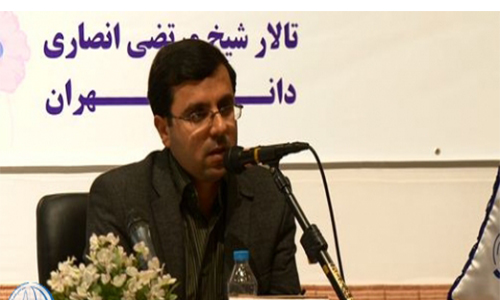The growing expansion of the use of information and communication technology in vital infrastructures and the unlimited and uncontrollable access of people to communication tools such as the Internet and satellite has led to the formation of virtual space alongside the real space in interactions between governments. In such a space, the concept of national security, challenges and threats have evolved and new actors such as individuals, terrorist groups and organized criminal groups play an important role and position in regional and international security campaigns.
Cyberspace, as a new operational context, has made it possible for terrorist groups to pursue their goals and intentions in cyberspace regardless of the limitations of the real world. Among these, one of the most important emerging threats is cyberterrorism, which has become increasingly important due to the increasing use of information and communication technologies by governments to accelerate, increase efficiency and reduce costs in providing services to citizens; In such a way that even governments use cyberterrorism as a tool in their conflict patterns. In the meantime, the most important generators of insecurity in cyberspace in terms of terrorism are classified into two major groups; Threats from those affiliated with a foreign country, such as military departments, security agencies, and companies that are heavily dependent on that government; And the second threat is terrorists and extremist groups. These people may not be affiliated with a particular government, but they engage in sabotage in line with their goals.
Cyberterrorism is any terrorist act in which information systems and digital technologies are used as attack tools and targets. These attacks must lead to violence against persons or property, in a way that creates terror. The general understanding is that cyber-terrorism means an attack and threat of illegal attack on computers, networks and information stored in them, which is done in order to intimidate or force a government or its people to advance specific political or social goals. Additionally, for an attack to be considered cyberterrorism, it must result in violence against persons or property, or at least cause enough damage to cause terror. Attacks that cause death, bodily harm, explosions, aircraft collisions, water pollution or severe economic damage are among these cases. Severe attacks against vital infrastructures can also be considered cyber terrorist acts, which of course depends on the amount of consequences these attacks bring.
Just as explosives and firearms are the main tools of classic terrorism, the most likely weapon of cyberterrorists is the computer. There are many ways that terrorists (state and non-state actors such as terrorist groups) can use the computer as a terrorist tool. The most basic methods of cyber terrorism are: hacking, computer viruses, electronic espionage, identity theft, and destruction or manipulation of information. Since information and communication technologies are constantly expanding and include various dimensions of human activities, terrorists active in the cyber space gain more power and by using the advantage of anonymity and identity concealment on the Internet, they threaten security, health, Stability and
Due to the increasing growth of internet use and the rapid movement of countries towards the electronicization of social and economic services and the effect of the information revolution on the improvement of military technologies, international security will face new threats and challenges in the coming years. It is obvious that reducing vulnerabilities and strengthening security and peace in the face of emerging threats and new actors, and getting rid of cyber tourism, requires conducting future research studies on the impact of the information revolution on national security, cyberspace threats, improving technical capabilities and public awareness of these threats and It is also in the use of knowledge and information in this regard.
the writer:
Dr. Morteza Nurmohammadi, Assistant Professor of International Relations, Allameh Tabatabai University (RA)




